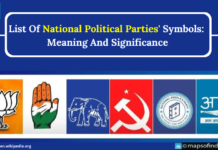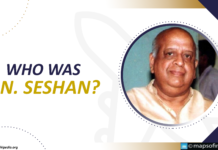Not a period comes and goes in the West which doesn’t look towards some mystical notion of India’s ancient past. It was a cradle of civilisation, it is said. The place where life and civilisation as we know it generated.
Much has been made of and done with this idea of India’s ancient past. Films, TV shows, books, even academic work is prevalent which bases itself on some undefined unspecified notion of India’s past glory.
In the popular and collective imagination of Europe, for instance, India is an India with untold wealth, profound mysticism and a collection of ideas that go beyond what is considered mundane. There are these supposedly naked philosophers who wandered in forests. There also exist in this particular idea of India an idea of an after-life of the soul. All these form part of the picture presented.
An investigation into the history of this notion therefore produces some interesting results. How and when did this idea of Indian mysticism originate, how did it evolve and what happened to it in the present?
The first known instance of this spectacular idea of Indian mysticism goes as far back as Ancient Greece. The Greeks thought of India this way and this idea continues up to the contemporary time period. India becomes the site of THE Orient – a mystical land where you can lose your self and where everything is possible. Naked fakirs, the after-life and untold wealth and glory form part of the picture. This picture of India continues up to this day. These are notions one encounters every where in the West.
The reality is far from glorious though. The land is a land of untold wealth but it has been and continues to be limited to a few. Even in Ancient India, this notion of unbounded wealth was just a myth propagated by the Greeks as part of construction of India as an other land of exoticism. Wealth and exoticism thus went together. Even notions such as the after-life and myths such as the control and publicisation of myths are and were limited to a few. Control is not control in the true sense if not limited to a few, as has been the case here.
Other practices of history writing, whether colonial or nationalist, use these myths to talk about how bad or good India’s ancient past was. The colonialists saw nothing that could be called as Indian history because their view of history was too narrow. The nationalists, on the other hand, used this view of history to glorify a particular aspect of India. This is what Indian culture is, they said. In an act of defining it, they tended to create their own version of history. This has today led to a dangerous mixture of Indian patriotism, nationalism and Hindu fundamentalism.



